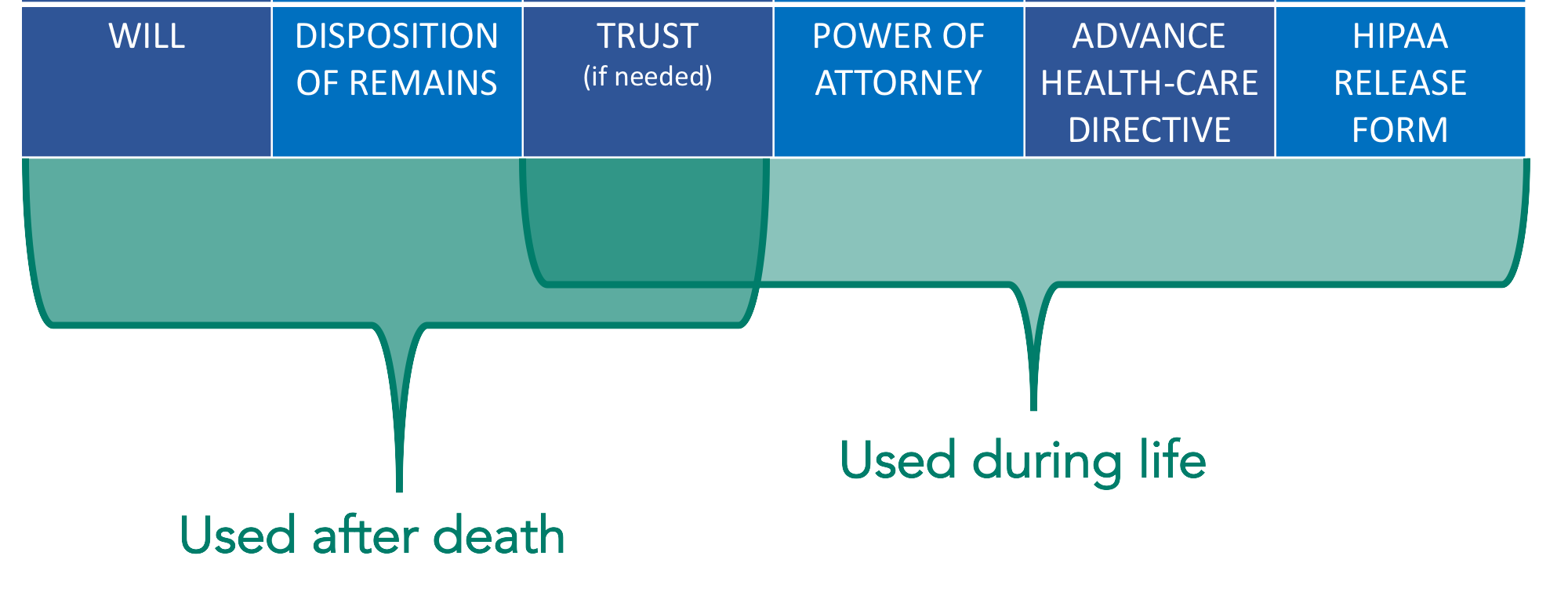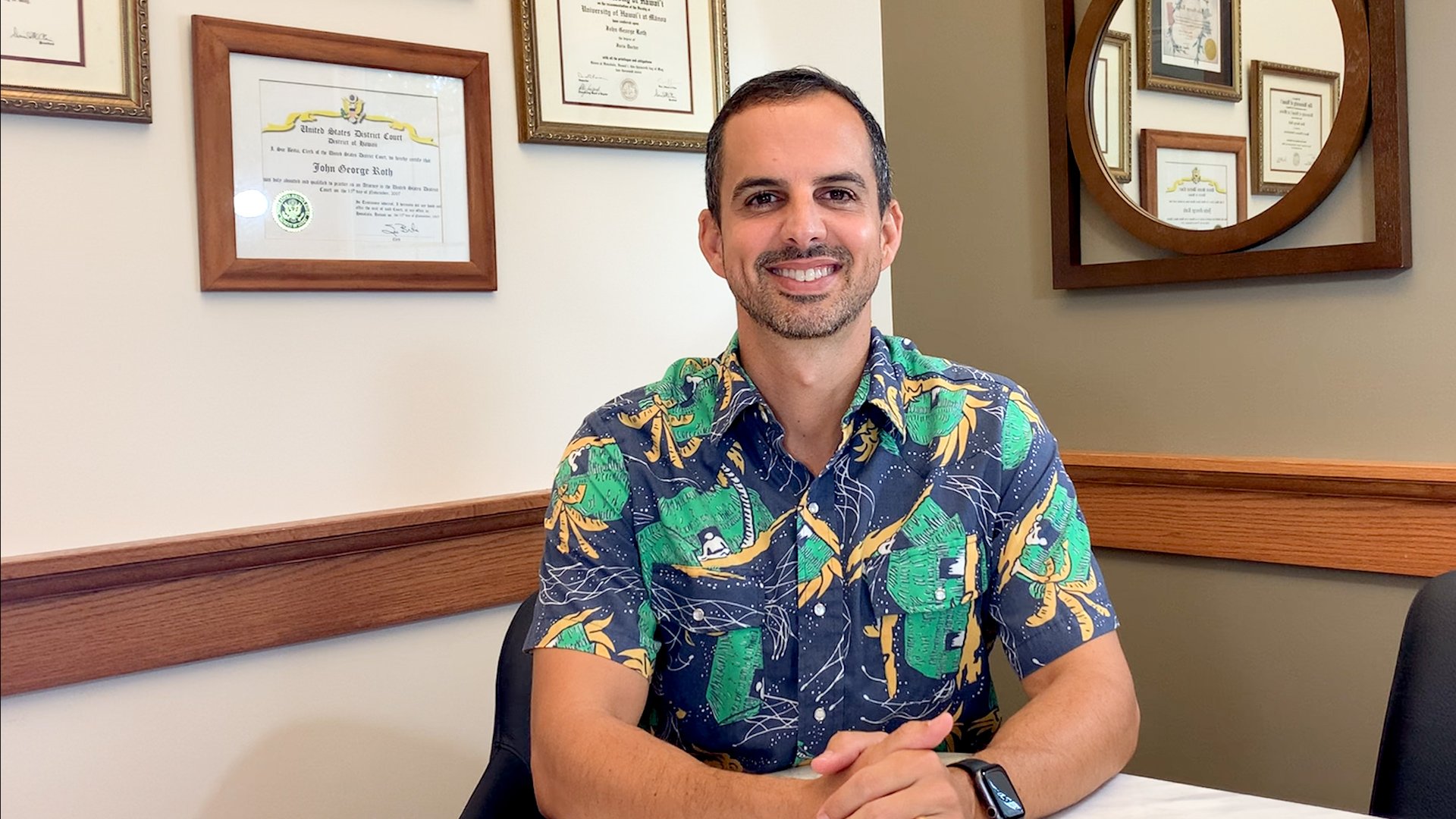HOW SHOULD YOU HOLD TITLE TO YOUR PROPERTY IN HAWAII?
So you’ve found your own piece of paradise in Hawaii or maybe you’ve owned property here for years, how should you hold title to this property on the deed?
In very simplified terms, here are your options for how to hold title to real estate in Hawaii:
Joint Tenants (with rights of survivorship):
When multiple people own EQUAL interest in one property. When one joint owner dies, their ownership interest automatically goes to the surviving joint owners (no matter what the deceased owner's will or trust says)
Tenants by the Entirety:
Only an option for SPOUSES. Just like Joint Tenants with Rights of Survivorship but also has CREDITOR PROTECTION from creditors that only have a claim against one spouse.
Tenants in Common:
Multiple people who own the same property (they can own any percentage) and they can control where their property interest goes upon death in their will or trust.
Tenant in Severalty:
When one person owns 100% of the property.
HOW DO YOU AVOID GOING THROUGH PROBATE AFTER A PROPERTY OWNER DIES?
Probate has a bad reputation for being a slow, cumbersome, and expensive process to go through, when you're already dealing with the loss of a loved one, so most people try to avoid it. Simply put, probate is a judicial process, on the State-level, that attempts to ensure that a deceased person’s property ends up in the right hands. Real property is one of the assets that triggers probate (even if the person who passed away has a will).
There are three common ways to hold property jointly between two people in the State of Hawaii: joint tenants (with rights of survivorship), tenants by the entirety, or tenants in common. If a property is held jointly between two people, either joint tenants (with rights of survivorship) or tenants by the entirety, if one owner dies, the surviving owner becomes the 100% owner by rights of survivorship. On the other hand, if the property is held tenants in common, between two joint owners, if one owner dies, their interest does not automatically go to the surviving joint owner, it triggers probate.
Other ways to avoid probate is transferring a property to a new owner with a transfer on death deed or holding it in a trust, which will be explained below.
WHAT IS A TRANSFER ON DEATH DEED?
As of June 27, 2011 Hawaii passed the Uniform Real Property Transfers on Death Act which allows real estate to go to a beneficiary when the owner dies, without having to go to court for probate. A revocable transfer on death deed is kind of like a designated beneficiary provision for your property. Do you remember that form you filled out for your retirement account or life insurance policy saying who you want to get your account remainder when you pass away? That was your designated beneficiary provision. In the case of a retirement account, when someone passes away, the beneficiary just needs to provide the death certificate to the financial institution who holds the account and they will be paid, bypassing any estate administration or probate. Likewise, with a transfer on death deed, the beneficiary just needs to provide the death certificate to the Bureau of Conveyances and they will become the new owner of that property, bypassing any estate administration or probate.
DO YOU NEED A TRUST?
Many of our clients come to us in the process of buying a property and ask “Do I need to put this property in a trust?”. It may be easiest to think of a trust as an entity, like an LLC, where assets can be transferred into and taken out of the trust throughout your lifetime. The trust also carries on after your lifetime. A trust is also managed by rules and has ultimate beneficiaries that you decide upon when creating the trust.
Having a trust can be used to avoid probate, which may save some settlement costs, especially if you own real property located outside of Hawaii. It can also be helpful in the event of your incapacity and can provide for management of assets for children or other beneficiaries after your death. At times, a trust may also be indicated for estate tax reasons. Trusts can also be complex and a conversation about your goals and assets should be had with an estate planning attorney before making any big decisions.
To learn more about trusts, please see:
We hope you found this information on how to hold property in Hawaii helpful. If you have any questions please comment below or contact us.
BIOS
JOHN ROTH
John is the founder of Hawaii Trust & Estate Counsel, a statewide Hawaii estate planning law firm with offices in Waimea, Hilo, Kona, Maui, and Honolulu. He has taught Estate Planning at the Richardson School of Law, and business law courses at the University of Hawaii—Hilo. He started “Just Ask John” as a monthly newspaper column answering commonly asked estate planning questions, in the North Hawaii News, then in The West Hawaii Today. Now it’s an online blog and video series. ....MORE
LEIOLA AUGUSTINE
After earning a degree in Marketing from Pepperdine University Leiola returned home to give back to the Big Island where she acquired many sunburns as a young surfer. She has since built her real estate career on providing remarkable representation while sharing the true island lifestyle that she grew up in.
As a licensed Realtor since 2006 Leiola has developed a distinctive skillset in the luxury real estate market by serving a broad spectrum of Buyers and Sellers that range from individual owners to investors....MORE
MAKE AN INFORMED DECISION
Estate Planning is necessary because, as the old expression goes, "You can't take it with you" and you never know what's going to happen in life. The estate planning documents of an advance health-care directive, power of attorney, and sometimes a trust help someone step into your shoes to make decisions on your behalf, during your lifetime. Then after your lifetime, you may need a will or will substitute, such as a revocable living trust, if they want to control who inherits their property and how and when that inheritance is received, to minimize administration costs, and to avoid unnecessary taxes. A well-planned estate is a gift to your loved ones and provides you peace of mind. It is part of your legacy.
Everyone has a different story and should have a unique estate plan. In most cases, the first meeting with one of our attorneys is complementary and serves the purpose of understanding your goals and educating you on your options. Depending on the option that is right for you, we will give you a price quote at the first meeting, before moving forward with your plan. Feel free to explore the basic information on our website.
This blog does not contain legal advice. You should not rely on this to determine what is in your own best interest. For legal advice, specific to your situation, you must meet with an attorney. All posts are based on hypothetical scenarios, not the actual circumstances of real clients.











What assets should you put in your trust? Avoiding probate, planning in case of incapacity, and making things as easier for loved ones after your death are all things to consider.